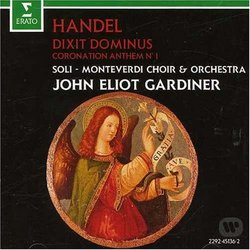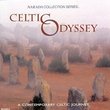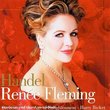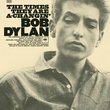| All Artists: George Frederick Handel, John Eliot Gardiner, Charles Brett, John Angelo Messana, Nicholas Kraemer, Monteverdi-Orchester München, Malcolm Hicks, Margaret Marshall, Richard Morton, Alastair Thompson, Felicity Palmer Title: Handel: Dixit Dominus; Coronation Anthem No. 1 Members Wishing: 0 Total Copies: 0 Label: Erato Release Date: 9/8/1992 Genre: Classical Styles: Opera & Classical Vocal, Historical Periods, Baroque (c.1600-1750) Number of Discs: 1 SwapaCD Credits: 1 UPCs: 022924513626, 002292451362 |
Search - George Frederick Handel, John Eliot Gardiner, Charles Brett :: Handel: Dixit Dominus; Coronation Anthem No. 1
 | George Frederick Handel, John Eliot Gardiner, Charles Brett Handel: Dixit Dominus; Coronation Anthem No. 1 Genre: Classical |
Larger Image |
CD DetailsSimilarly Requested CDs
|
CD ReviewsA voice teacher and early music fan George Peabody | Planet Earth | 09/09/2007 (4 out of 5 stars) "WOW! WOE! and WHOOPS! WOW beause the Monteverdi Choir opens this work 'Dixit Dominus' with much excitement and fervor and speed! In fact the 6 choruses in this performance are performed with all the attributes of Handel's music that a very scholarly John Eliot Gardiner can ascertain. My hand wanted so much to give this disc 5 stars BUT WOE crept in with the entrance of the first solo performed by Charles Brett; his voice was 'edgy' very non-legato; close to being somewhat breathy; in short: he either had a bad day or it was not his 'bag' so to speak. I have him on some other recordings and he sounds better on those than on here. The tenor voice of Richard Morton was OK, but he is no Mark Padmore. The bass voice of David Wilson-Johnson was very resonant until he went lower in his register, at which time the word endings did not come forth. The soprano Felicity Palmer was quite good and performed her solo well. AS for the WHOOPS! The tempos are somewhat questionable in two of the selections: 'De torrente in via bibet'(soprano duet) dragged on to the point of boredom, which is so unlike Gardiner, one has to wonder who was at fault???? In the choral selection : 'Tu es sacerdos in aeternam' the tempo was so fast that many of the words were lost, but I didn't mind because I knew the words and the sound was fabulous. Did I enjoy this recording? You bet I did, and I'll listen to it and pass up most of the solo tracks and enjoy the overall aggressive excitement of the performance as only Gardiner can produce. We all have to be careful that we don't analyze a recording so much, that we lose the joy contained therein. However, I own another rendition of this work that fulfills my expectations somewhat better than this one: 10 years later (1986) Stephan Cleobury produced a disc with the King's College Choir and a truly superb line-up of soloists: sopranos: Isobel Buchanan, Anne Mackay- countertenor:Michael Chance- tenor: Wm. Kendall and bass: Henry Herford. A wonderful listening treat, although a totally traditional approach with an element of the romantic as opposed to the aggressive! Depending upon my mood at the time, I'll make my choice, but they both have a place in my library. As for 'Zadok the priest' I think maybe the enjoyment of this work depends upon whether you prefer hearing female sopranos or boy sopranos. I lean to the boy's voices, but have no objection to the females because Gardiner has chosen such good ones, and they seem to emulate the required 'lightness' and crystal-clear sound of the boys. " LORDS, KINGS ET AL DAVID BRYSON | Glossop Derbyshire England | 03/02/2005 (4 out of 5 stars) "This performance of the Dixit Dominus seems to me quite outstanding, one that I can recommend without an instant's hesitation. The short measure offered by the disc overall would not have prevented me from awarding a fifth star: what does that is an account of my beloved Zadok the Priest that doesn't suit me at all. I may never hear my perfect Zadok in this world (and there may not be another to hear it in) but I have several other performances and the one from Pinnock comes fairly close. The Dixit Dominus is not so easy to come by. It is distinctly difficult for amateur singers, the professionals tend to give it a wide berth, so I would have been grateful for a lesser effort than Gardiner turns in here. I give this performance full marks, or as near as makes no difference. The seven soloists are excellent, particularly the two sopranos, and the chorus are if anything even better. The demands made on the singers are of a kind I associate much more with Bach than with Handel. Bach's vocal writing is profoundly influenced by instruments, and so is Handel's at this early stage of his career - the result, presumably, of German compositional training. Bach wrote for voices like this to the end of his days, whereas Handel struck out in a very different direction after he came to England. His style at age 22 is absolutely fascinating. He never gave up coloratura writing to say the least (in `For unto us' in Messiah the word `born' is set to an unbroken trait of 57 notes) but he developed a more distinctively vocal manner for it. Some signs of the later Handel are already here - the changes of pace and the stops and starts are most un-Bachian - but some other characteristics like the trademark cadence that is ubiquitous in his later output do not occur here at all so far as I remember. Nor do I believe that the English Handel would have ended a work like this in the minor key. There are also Italian elements in his style that he brought with him to Italy from his earlier studies, and the spectacular setting of `conquassabit', influenced I dare say by Monteverdi, looks forward to the prophetic old testament graphicness with which he would astound us years later. The performance and recording do this early masterpiece justice. I'm not sure what notes may be available in which countries, but in case it needs saying `confregit' in the chorus `Dominus a dextris' means `has shattered' not `shall wound'; and the words of the aria `tecum principium' mean `Kingship be [or `is' or `will be'] with you in the day of your supremacy amid the glory of the saints: I have begotten you from the womb before the dawn.' Not everyone will have a choice of versions of Zadok so I feel, reluctantly, that this reading denies the disc a fifth star. This is not a matter of niceties - it is far too slow and completely lacking in the electricity that this great piece should give off. If you can overlook this you will find here a splendid account of a thrilling early masterpiece that deserves to be better known." Handel as it should be Brian G. Laush | Gaithersburg, MD United States | 04/07/2004 (5 out of 5 stars) "There are many recordings and studies of Handel's music, including just as many if not more interpretations of his pieces. Add to that variable today's recording technologies allowing the window of opportunity to be stretched to even greater limits. As a musician - vocal performer, I look for the clarity and transparency of the music above and beyond the "tricks of the trade". This recording, while being technically excellent,is in my opinion, the epitomy of Handel as it should be performed because it is not too fast, too slow, too dynamic, or "too" anything. It is Handel at his early best; no question about it. This recording allows the listener to experience the music without interruption or distraction."
|








